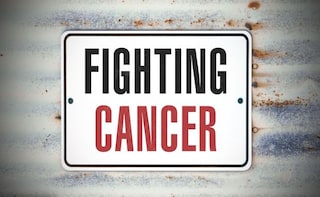Like all significant and life-altering things in the world, cancer too gets its dedicated day of global observance every year. 4th February marks the world-wide celebration of the undying, indomitable spirit to fight the debilitating disease and spread awareness tied to all its aspects - prevention, diagnosis, treatment, cure and of course, accepting it as a part of your personal journey. This cancer day was remarkably distinct for me; I read stories and worked on informative articles to an extent that what should have been a passing, transitory thought, lingered in my head for days to follow. Four days later I found myself tucked in a stuffy compartment on a train back home. "The MRI report of your mother hasn't come out clean, I am afraid the disease is bad, I suspect it is cancer," concluded my family doctor over a hasty phone call. I had been researching and reading about cancer, but never thought I would be seeing it up so close. The next few days taught me how to get to know the monster in real, understanding its lethal effect and try to embrace it despite the zillion wounds it would inflict on me and my family. In the process I was exposed to the realities of what exactly happens when people confront this ghastly monster.
A recent AFP report suggests many countries to probably develop, "twice as many cancer cases in the next 20 years, particularly true for countries with limited resources, the low and middle-income countries." According to the World Health Organisation, close to 14 million new cancer cases are reported every year out of which over 8 million lose the battle annually. In such trying times the utmost focus should be on cancer research funding and making preventive measures known and accessible to one and all.
A recent AFP report suggests many countries to probably develop, "twice as many cancer cases in the next 20 years, particularly true for countries with limited resources, the low and middle-income countries." According to the World Health Organisation, close to 14 million new cancer cases are reported every year out of which over 8 million lose the battle annually. In such trying times the utmost focus should be on cancer research funding and making preventive measures known and accessible to one and all.
Advertisement
For the latest food news, health tips and recipes, like us on Facebook or follow us on Twitter and YouTube.
Advertisement
